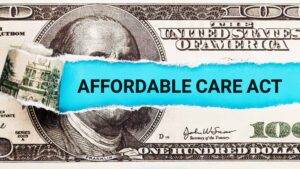
A family-friendly New Orleans CPE conference makes it easy to earn credits in the morning
4 min read
VALENTINE’S DAY FLASH SALE – Shop Tax Updates, OBBBA series and Save Now, Choose Later

As real estate markets continue to expand and institutional investors increasingly turn to professional property management services, the demand for skilled accounting professionals who understand the unique complexities of this field is only growing. Unlike traditional accounting practices, property management accounting requires specialized knowledge of fiduciary responsibilities, trust account management, complex revenue recognition scenarios, and intricate tax implications that can make or break a property investment’s profitability. Whether you’re an experienced practitioner looking to expand your service offerings or a newcomer looking to expand your services, investing in specialized property management accounting CPE is essential for building the technical foundation and professional credibility needed to successfully serve the needs of clients looking for property management accounting services.

Property Management Accounting delivers exactly what tax and accounting professionals need to excel in property management accounting. The property management accounting CPE covers essential skills like maintaining separate trust accounts, revenue recognition for contingent and deferred rent, and properly handling security deposits and pass-through charges. You’ll learn about the specialized chart of accounts required for property management, be able to distinguish between capitalizable improvements and ordinary repairs and understand the specific reporting requirements that property owners require for tracking the profitability of their properties. From accrual versus cash basis considerations to calculating key performance metrics like operating expense ratios and return on investment, this accounting in property management CPE give you the base-line needed to confidently serve property management clients.
Transform property management operations into profitable, streamlined processes that directly impact your clients’ bottom line and your advisory value with Property Management Best Practices. Explore the best practices for maximizing rental revenues through strategic tenant selection, cost-effective marketing approaches, and rent optimization techniques. The property management accounting course covers security deposit management, expense categorization for tax purposes, and capital expenditure scheduling that every tax professional must understand. The practical frameworks for budgeting, income statement preparation, and cost-benefit analysis will immediately enhance your ability to provide strategic advisory services that justify premium fees while helping your property management clients build sustainable wealth.
We can’t talk about property management accounting without getting into real estate taxation. The Real Estate Tax Guide is your essential resource for the real estate tax expertise needed to maximize value and avoid costly mistakes for clients. This comprehensive real estate taxation program grants tax professional’s expert guidance on tax regulations, covering everything from property acquisition and basis calculations to depreciation strategies and passive activity loss rules. Whether you’re handling rental income recognition, managing operating expense deductions, or navigating leasehold improvements and tenant transactions, this property management accounting course provides the technical foundation that separates expert property management accountants from the competition. Get ready to expertly handle the most challenging tax situations that arise in property management with the Real Estate Tax Guide.
Whether you’re an experienced practitioner or newcomer, Real Estate Accounting provides invaluable insights into fiduciary responsibilities, trust account management, and sophisticated lease accounting treatments. For you to properly service clients in property management accounting, you’ll need to know concepts like income-producing property acquisitions, asset retirement obligations, environmental liabilities, and the intricate financial structures of REITs, housing associations, and real estate ventures. Participants in this property management and accounting CPE will be able to define revenue recognition, time-sharing activities, and business combinations for property management. With this property management accounting CPE, you’ll be ready to serve high-net-worth investors and institutional property owners, expanding your client portfolio and profit margins.
Already familiar with real estate and property management accounting? Get more specialized with the comprehensive 11-credit Special Problems in Real Estate Taxation course focused on real estate taxation and its relationship to property management. This property management and accounting course addresses installment sales reporting, like-kind exchanges under Section 1031, passive activity loss rules, and depreciation recapture scenarios that property managers encounter regularly. Participants in this real estate taxation and property management accounting course will learn how to handle foreign investor transactions, REIT taxation complexities, and involuntary conversions from condemnations. Experienced property management accountants can expect to sharpen their expertise in advanced real estate taxation and property management strategies.
The real estate and property management courses outlined above provide the comprehensive knowledge base needed to confidently serve property management clients while ensuring compliance with complex regulations and fiduciary standards. From understanding trust account management and revenue recognition to navigating sophisticated tax strategies and depreciation scenarios, these educational programs equip you with the specialized expertise that property owners and management companies actively seek. The property management accounting field offers exceptional opportunities for career growth, higher billing rates, and expanded client relationships. Make client property investments count by investing in yourself with quality CPE.






Subscribe to our news, analysis, and updates to receive 10% off your first purchase of an on-demand digital CPE course.